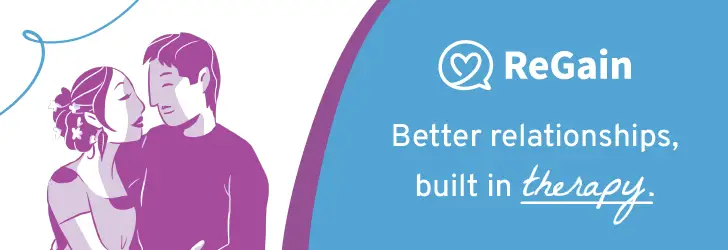As a BetterHelp affiliate, we receive compensation from BetterHelp if you purchase products or services through the links provided
CSAT therapy, or Certified Sex Addiction Therapist training, is a specialized approach to helping individuals overcome sex addiction and develop healthier relationships with themselves and others. This type of therapy is crucial for those suffering from addiction and partners and family members impacted by their loved one’s struggles. By understanding CSAT therapy and its role in treating addiction, you can gain insight into its importance in promoting mental health and healing.
CSAT therapists are trained to recognize the unique aspects of sex addiction and utilize diverse therapeutic techniques to address the underlying issues. They draw on various methods to help individuals build a strong foundation for recovery, considering factors such as trauma, mental health, and relationship dynamics. The role of a CSAT therapist extends beyond therapy sessions as they also provide valuable resources and tools to support ongoing growth and healing for addicted individuals and their loved ones.
Key Takeaways
- CSAT therapy is designed to help those struggling with sex addiction and its impacts on relationships
- Certified therapists use various techniques to address the complex factors underlying addiction.
- Continued support for clients and their families is crucial for long-term recovery and healthy relationships.
 Understanding CSAT Therapy
Understanding CSAT Therapy
CSAT therapy, or Certified Sex Addiction Therapist therapy, is designed to help individuals struggling with sex addiction learn healthy coping mechanisms and foster lasting recovery. As part of the treatment process, you will likely work with a certified CSAT therapist with specialized training and experience in treating sex addiction.
In the early stages of your recovery, CSAT therapy often focuses on establishing a safe and comfortable therapeutic environment. Your therapist will work with you to identify the underlying causes of your addiction, including any feelings of shame or guilt contributing to your compulsive behaviors.
Throughout treatment, you can expect to participate in various therapy sessions, individually and in groups, and receive support and guidance from other members of your therapeutic community. You may also engage in a range of therapeutic activities specifically tailored to your unique needs and circumstances.
Being honest and open about your experiences and challenges is essential during CSAT therapy. This will enable your therapist to understand your specific needs better and develop a personalized recovery plan for you. Ultimately, CSAT therapy aims to empower you with the tools to overcome your addiction and achieve lasting change in your life.
Remember, recovery is a process that requires time, patience, and dedication. By participating in CSAT therapy and committing to your recovery journey, you are taking essential steps toward building a healthier and more fulfilling life.
 The Role of a CSAT Therapist
The Role of a CSAT Therapist
The therapist’s main objective is to support and guide individuals grappling with sex addiction. This complex mental health disorder can wreak havoc on various facets of a person’s life. But with the assistance of a CSAT therapist, those struggling can regain control and embark on a path toward healing.
Prioritizing the creation of a safe and non-judgmental environment is paramount. A CSAT therapist must emphasize confidentiality to foster trust, enabling clients to share their struggles and experiences openly. Such a solid therapeutic relationship empowers individuals to face their addiction candidly and constructively.
As a CSAT therapist, key responsibilities include:
- Assessing Clients’ Needs: A thorough understanding of a client’s addiction, severity, and related mental health issues is vital. This initial assessment informs the tailoring of an effective treatment plan.
- Developing Treatment Strategies: Utilizing the gathered insights, a CSAT therapist designs customized treatment plans for each client. These may encompass diverse approaches like cognitive-behavioral therapy, group therapy, or psychoeducation.
- Monitoring Progress and Providing Feedback: Regular assessments of clients’ progress throughout the therapy process allow for adjustments to treatment strategies as necessary. Timely and constructive feedback fuels clients’ confidence to persist in their recovery.
- Offering Support and Resources: A CSAT therapist’s wealth of knowledge and resources can be pivotal in clients’ recovery journeys. Guidance on coping mechanisms, self-help materials, and support groups can facilitate healing.
The road to recovery from sex addiction is often fraught with challenges, marked by highs and lows. In the role of a CSAT therapist, unwavering support, patience, and understanding are essential in helping clients rediscover a sense of self-worth and mastery over their lives. The therapist’s commitment to their clients extends beyond mere treatment, embracing a holistic approach that recognizes the unique complexities of each individual’s struggle and triumph.

Addiction and Mental Health
When it comes to addiction, both sex and pornography addiction are known to be complex issues that can significantly impact your mental health. These addictions often involve compulsive behaviors, driving one to engage in them even when they know the consequences might be harmful.
Compulsive sexual behaviors manifest in various ways, including persistent thoughts and excessive time spent on pornography or sexual activities. These behaviors can cause a strain on your relationships, career, and overall well-being.
It’s essential to understand that sex and pornography addiction are recognized as mental health disorders. They are not just a matter of an individual’s lack of self-control or moral weakness. Like any other addiction, these disorders can have biological, psychological, and social components, all requiring holistic treatment and support to overcome.
If you believe you or someone you know might be struggling with sex or pornography addiction, addressing these issues is crucial and not ignoring them. Professional help, such as therapy, support groups, and medication, can be beneficial in managing these compulsive behaviors and navigating the way toward recovery.
Remember that mental health is an integral part of your overall well-being. Taking care of your mental health can positively impact all aspects of your life. Seeking help and resources for addiction and mental health is crucial to achieving balance, happiness, and a healthier future.
 Certification and Training
Certification and Training
When seeking professional help for sex addiction, understanding the qualifications and training of a CSAT therapist can be vital. Here’s an overview for those considering engaging with a CSAT professional.
A Certified Sex Addiction Therapist must complete a rigorous training program and certification process. They begin their journey already as a licensed mental health professional, working as a therapist, counselor, or psychologist.
The International Institute for Trauma and Addiction Professionals (IITAP) offers an intensive CSAT training program. This training equips professionals with the tools they need to help clients navigate the complexities of sex addiction.
The pathway to becoming a CSAT includes:
- Completing Multiple Modules: These cover various topics, from assessing sex addiction to creating treatment plans. Experienced instructors in the field conduct these comprehensive modules.
- Earning Continuing Education Credits (CECs): These are essential for maintaining a professional license providing a framework for ongoing professional growth.
- Possibility of Advanced Certification: After obtaining CSAT certification, some may wish to pursue the Advanced Sexual Addiction Therapist (ASAT) certification. This enhances credibility and ensures alignment with the latest research and best practices.
- Becoming a CSAT Supervisor: This additional role guides other professionals seeking certification or wanting to enhance their skills in sex addiction treatment. It’s an avenue for contributing to the profession, though it requires further training and experience.
For those considering the expertise of a CSAT therapist, knowing that they’re committed to ongoing professional development can be reassuring. This commitment ensures that their knowledge remains current and that they are well-prepared to support individuals recovering from sex addiction.
In summary, the qualifications and training of a CSAT therapist encompass a specialized and intensive journey. It reflects a dedication to understanding, treating, and continually learning about sex addiction. This information can be pivotal for those considering therapy, providing insight into the therapist’s background and commitment to their client’s recovery journey.
 Types of Therapy Involved
Types of Therapy Involved
You’ll find various methods and options tailored to your needs and preferences when exploring CSAT therapy. This section details some of the most common types of therapy involved in CSAT.
Group therapy offers a supportive environment where people can share their experiences and learn from one another. In a group setting, you can foster connections and receive encouragement while gaining insight into different perspectives.
Individual therapy caters to your specific needs and personal circumstances. With one-on-one sessions, your therapist will work closely with you to develop a customized treatment plan. Individual therapy allows for a more intimate collaboration between you and your therapist, which can be immensely beneficial in addressing your concerns.
Family therapy involves the participation of your loved ones in the therapeutic process. This approach emphasizes the importance of understanding the impact of addiction on everyone involved and strengthening family relationships. In family therapy, everyone works together to promote healing and create a supportive environment.
The convenience of messaging as a communication tool in therapy cannot be underestimated. It provides easy access and lets you stay connected with your therapist, even when not in a physical session. With messaging, you can seek guidance and support at your own pace and comfort level.
CSAT therapy is highly accessible, thanks to various avenues like online counseling and therapy. These methods enable you to engage in therapy sessions from the comfort of your home, which can be especially helpful if you have limited access to traditional in-person services.
Virtual therapy encompasses video conferencing, phone calls, and asynchronous messaging, providing flexible options to suit your schedule and personal preferences. By choosing virtual therapy, you can benefit from the expertise of a CSAT therapist, no matter where you’re located.
 Relationships and Addiction
Relationships and Addiction
Struggling with addiction can significantly impact your relationships, especially with your partner. Betrayal trauma may occur if the obsession hides an underlying issue like infidelity or dishonesty. This can leave you and your partner emotionally wounded, isolated, and confused. It’s essential to acknowledge the damage caused by addiction and take steps to rebuild trust in your relationship.
A helpful resource for coping with relationship issues stemming from addiction is couples counseling. Here, you and your partner can explore your challenges and learn how to overcome them together. Trained professionals can guide you in establishing healthy boundaries and effective communication strategies. They can also help you better understand your partner’s addiction and its impact on your relationship.
In addition to couples counseling, attending individual therapy sessions can be beneficial. This can help you work on personal issues like establishing boundaries and dealing with negative emotions. Managing your mental health is essential to maintaining a fulfilling relationship.
Addiction can also influence your sexuality and intimacy, potentially causing a rift between you and your partner. You can openly discuss these concerns with your partner through counseling, fostering honest communication. This can help you work together to develop a stronger emotional and physical connection.
Remember, recovering from addiction is a long journey; rebuilding your relationships takes time. Be patient with yourself and your partner, and support each other’s progress. Stay dedicated to the healing process, and you’ll be on a path toward healthier, happier relationships.
Helping The Addicted
Recognizing that you or a loved one is struggling with addiction can be challenging. But when you’re ready to take control, the journey towards recovery and healing starts with seeking help. CSAT therapy can play a vital role in this process.
As you begin your journey, it’s essential to understand the underlying and root causes of your addiction. By uncovering these contributing factors, you can better address the problems and behaviors that may keep you stuck in a cycle of dependency.
- Recovery: CSAT therapy helps you commit to a personalized recovery plan. This plan guides you through healing with specific milestones and goals. It provides structure and support throughout your journey.
- Healing: Focusing on your emotional well-being is crucial during this stage. CSAT therapy helps you understand and process your feelings as you work towards recovery. It provides strategies for managing triggers, building healthy relationships, and developing positive coping mechanisms.
- Underlying Causes: A critical aspect of CSAT therapy is identifying the root causes of your addiction. By working with a trained therapist, you’ll delve into past experiences and unconscious beliefs that may contribute to your addictive behaviors.
- Commitment: Your journey towards recovery isn’t without its challenges. It’s essential to stay committed to the process. CSAT therapy will help you maintain this commitment, building resilience and determination.
- Seeking Help: A support system plays a vital role in the success of your healing journey. CSAT therapy encourages you to engage with your community, seek appropriate treatments, and get assistance from professionals and peers.
Remember, every individual’s journey toward recovery is unique. CSAT therapy guides and supports you as you navigate your path toward a healthier and more fulfilling future.
The Role of IITAP
The International Institute for Trauma and Addiction Professionals (IITAP) plays a vital role in developing and advocating CSAT therapy. Founded by Dr. Patrick Carnes, IITAP’s mission is to provide cutting-edge training and certification for professionals in addiction and trauma treatment.
As a professional organization, IITAP brings together experts and practitioners specializing in treating addiction and trauma using the latest research and therapeutic techniques. This collaboration allows for sharing knowledge and developing specialized training programs, such as the Certified Sex Addiction Therapist (CSAT) program.
When you become a member of IITAP, you join a network of skilled professionals dedicated to helping individuals and families struggling with the challenge of addiction and trauma recovery. You can access valuable resources, ongoing support, and specialized training programs to enhance your practice through your membership.
Dr. Patrick Carnes, a renowned expert in the field of addiction and trauma, developed the CSAT program as a comprehensive approach to addressing the specific needs of individuals struggling with sex addiction and trauma-related issues. By following the CSAT model, you’ll learn proven methods for treating addiction and trauma, enabling you to offer highly effective support to your clients on their path to recovery.
In conclusion, IITAP’s role is to empower professionals like you with the knowledge and tools necessary to make a meaningful difference in individuals, families, and communities affected by addiction and trauma. By participating in IITAP’s training and certifications, you’ll gain the expertise to provide compassionate and effective care to those in need.
Regulations and Standards
Regarding CSAT therapy, it’s essential to ensure that therapists and treatment programs adhere to established regulations and standards. First and foremost, CSAT therapists should possess appropriate qualifications and training to treat Compulsive Sexual Behavior Disorder (CSBD). The World Health Organization recognizes CSBD under the International Classification of Diseases (ICD).
Finding qualified therapists is crucial for effective treatment. If you’re searching for a “CSAT therapist near me,” one of the most reliable indicators of expertise is certification from established organizations. Certification agencies often have strict criteria, including education, training, and experience requirements, which can give you peace of mind knowing that your therapist has the qualifications.
In addition to individual certifications, treatment programs often have their standards to maintain. Professional associations and accreditation bodies can help ensure that CSAT programs maintain a high level of quality. For example, some associations may require treatment centers to adhere to certain guidelines or to follow a specific therapy model.
It’s also essential to know ethical guidelines when seeking CSAT therapy. Reputable therapists should adhere to professional codes of conduct, which include respecting client confidentiality, obtaining informed consent, and avoiding dual relationships. You can usually find information on a therapist’s ethical guidelines through their regulatory body or professional association.
Lastly, staying updated on recent research and developments in CSAT therapy can contribute to better outcomes. Qualified therapists should be committed to remaining informed about the latest advancements in treatment, ensuring that they can provide the most effective and tailored therapy for your specific needs.
In summary, thorough research and attention to certifications and accreditations will help you find a qualified CSAT therapist to support your journey toward recovery.
 Navigating the Path to Healing: Do You Need CSAT Therapy and How to Recognize Progress
Navigating the Path to Healing: Do You Need CSAT Therapy and How to Recognize Progress
Sex addiction is a deeply personal and often misunderstood struggle. Determining whether you or a loved one might benefit from CSAT therapy and recognizing the signs that therapy is working can be an empowering step toward recovery.
How to Tell if You Need CSAT Therapy:
- Persistent Patterns: Continual engagement in sexual activities despite harmful consequences to oneself or others.
- Loss of Control: Inability to manage or reduce unwanted sexual behaviors.
- Impact on Relationships: Strained or broken relationships with partners, family, or friends due to sexual behaviors.
- Emotional Distress: Feelings of shame, guilt, anxiety, or depression linked to sexual activities.
If these or other challenges resonate with you, seeking the specialized assistance of a Certified Sex Addiction Therapist (CSAT) might be a crucial next step.
Signs CSAT Therapy is Working:
- Improved Self-Awareness: An increased understanding of the triggers and underlying issues that drive addictive behaviors.
- Enhanced Relationships: Progress in rebuilding trust and intimacy with loved ones.
- Control Over Behavior: A reduction in compulsive sexual activities and a shift towards healthier sexual expression.
- Emotional Growth: Developing coping strategies for handling emotions and stress without relying on addictive behaviors.
Recognizing the need for CSAT therapy and seeing signs of progress is a journey filled with complexity and nuance. It requires self-reflection, honesty, and a willingness to embrace change. CSAT therapy offers a tailored approach to help individuals navigate this intricate path, fostering growth, recovery, and renewed connection with oneself and others.
Navigating the Crossroads of Healing: Online vs. Offline Therapy and Including Significant Others
In the journey to overcome sex addiction, one of the pivotal decisions is choosing the therapy format that best aligns with individual needs. The options of online or offline therapy and including a significant other are profoundly personal and depend on various factors.
Online Therapy: The Virtual Healing Space
- Accessibility: Ideal for those living in remote areas or with limited mobility, online therapy offers a flexible option.
- Anonymity and Comfort: For some, virtual sessions provide an extra layer of privacy and the comfort of engaging from one’s own space.
- Considerations: Strong internet connectivity and a private space for sessions are required. Assessing the fit with the therapist through a virtual medium is also crucial.
Offline Therapy: The In-Person Connection
- Face-to-Face Interaction: Some individuals prefer the direct connection that in-person sessions offer, feeling it fosters a deeper therapeutic relationship.
- Access to More Techniques: Certain therapeutic methods might only be available in person.
- Considerations: Location, travel time, and personal comfort with an in-person setting should be considered.
Including a Significant Other: A Shared Journey?
- Enhancing Understanding: Inviting a partner to therapy can foster empathy and shared growth in healing from addiction.
- Assessing Readiness: Both parties must be willing and comfortable with this approach. Open communication and guidance from the therapist are key.
- Potential Challenges: Including a significant other might not be suitable for everyone. Assessing individual needs, relationship dynamics, and timing is essential.
Making the Right Choice
The decision between online and offline therapy and including a significant other must align with individual needs, preferences, and relationship dynamics. Consulting with a Certified Sex Addiction Therapist (CSAT) can provide valuable insights tailored to the unique circumstances of each person’s journey toward recovery.
Understanding these options enables an empowered and informed choice, reflecting a personalized approach to healing. Therapy is not a one-size-fits-all journey; these decisions are pivotal milestones in overcoming sex addiction and building healthier relationships.
Final Thoughts
Your exploration of CSAT therapy has given you valuable insight into this unique therapeutic method. Like any other therapeutic process, CSAT therapy requires dedication and genuine participation from the therapist and the client.
Remember the importance of open communication between you and your CSAT therapist – the foundation of a successful therapy experience. Don’t shy away from asking questions and seeking clarification whenever necessary. By actively engaging in the process, you enable a transformative experience to unfold.
While CSAT therapy is not a one-size-fits-all solution, it has shown efficacy in igniting positive change for many individuals. It’s essential to approach this therapy with an open mind and be willing to commit to the healing process.
We hope you have found this information helpful and insightful. May your newfound knowledge guide you in your journey toward healing and self-discovery. Good luck!
Frequently Asked Questions
What is the process for CSAT certification?
To become a Certified Sex Addiction Therapist (CSAT), you must complete rigorous training. This includes attending multiple training modules, participating in individual and group supervision, completing case consultations, and passing a final exam.
How can I find a CSAT therapist near me?
Finding a CSAT therapist near you is simple. Visit the International Institute for Trauma and Addiction Professionals (IITAP) website and use their search tool to locate therapists in your area. Search specifically for CSAT-certified therapists to ensure they have the appropriate training and expertise.
Are there online options for CSAT training?
Yes, there are online options for CSAT training. Many organizations and training programs provide virtual training modules and supervision. Check the IITAP website for information on any upcoming virtual training opportunities.
What is the difference between CSAT and CMAT?
CSAT (Certified Sex Addiction Therapist) certification focuses on treating sex addiction, while CMAT (Certified Multiple Addiction Therapist) targets multiple addictions, such as sex, drugs, and alcohol. Although the processes for earning these certifications may be similar, the focus of the training is different. CMAT training typically includes an expanded curriculum to cover a broader range of addictive behaviors.
What do CSAT-C and CSAT-S mean?
When you see the designations CSAT-C or CSAT-S, these refer to specialized certifications. CSAT-C stands for Certified Sex Addiction Therapist-Candidate, meaning the individual is attaining their CSAT certification. On the other hand, CSAT-S stands for Certified Sex Addiction Therapist – Supervisor, a designation for experienced therapists who can provide supervision and guidance to other CSAT candidates.
How does CSAT therapy work?
CSAT therapy addresses the underlying trauma and emotional issues that can contribute to sex addiction. You’ll work with your therapist through therapy sessions to identify triggers and behavior patterns, develop coping strategies, and implement a recovery plan. Treatment may include individual therapy, group sessions, and support from other addiction professionals and resources.
About Jacob Maslow
Journey Through Chaos: Finding Healing in CSAT Therapy and Beyond
Hello, I’m Jacob Maslow, and I’m no stranger to the complex world of mental health. I take Lexapro to manage my mental well-being and consider myself a therapy veteran. My relationship with therapy deepened through personal battles, including an ongoing court struggle with my ex, who suffers from severe narcissism.
I once had a close, loving relationship with my children, but that connection has been severed due to my ex’s refusal to cooperate with court-ordered shared custody. The court’s recent attempt at reunification therapy was a fleeting success, only to be shut down by her cancellation of further appointments. She’s consistently defied court orders, breaking the bonds that I held dear with our two minor children.
My daily walks stretch long, often as a therapeutic escape to clear my head from the turmoil. During these moments of reflection, I draw inspiration and strength to continue fighting for my children and mental well-being.
As I navigate this arduous journey, I’ve taken up the pen to share insights and experiences through articles about mental health, narcissism, and the legal intricacies of noncompliance with court orders. My writings aim to reach out to others in similar struggles, offering support and reaffirming that anyone can overcome mental health challenges.
I also run a legal site dedicated to assisting others who face a spouse unwilling to comply with court orders, weaponizing children rather than co-parenting. My efforts extend beyond personal healing, aspiring to become a beacon for others trapped in the chaos of narcissistic relationships and legal battles.
Remember, healing is a journey, not a destination. Whether through CSAT therapy or other means, we can find a path to recovery, understanding, and empowerment.
- 3 Ways Wearing a Hat Can Help Lower Your Stress Levels - April 19, 2025
- Breaking the Silence: Why Men’s Mental Health Matters More Than Ever - April 15, 2025
- How to Transform a Home’s Patio Space into a Relaxing Space - March 23, 2025
This site contains affiliate links to products. We will receive a commission for purchases made through these links.


 Understanding CSAT Therapy
Understanding CSAT Therapy The Role of a CSAT Therapist
The Role of a CSAT Therapist Certification and Training
Certification and Training Types of Therapy Involved
Types of Therapy Involved Relationships and Addiction
Relationships and Addiction
 Navigating the Path to Healing: Do You Need CSAT Therapy and How to Recognize Progress
Navigating the Path to Healing: Do You Need CSAT Therapy and How to Recognize Progress

